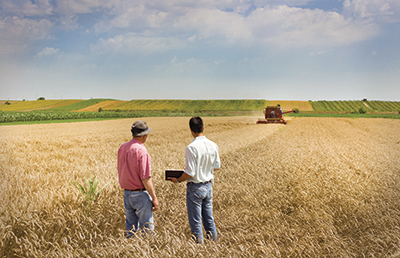IRS Releases List of Drought Counties

The IRS in Notice 2018-79 has provided a list of all of the counties in the US in some type of drought condition. This list provides taxpayers who sold livestock due to drought an additional year to purchase replacement livestock. Ranchers who sell livestock due to drought can either elect to defer these sales for one year or they can elect to defer the sales for four years after the year of sale. This provision only applies to the amount of “excess” livestock sold (typically those sales in excess of a three-year average).
However, if the county or any contiguous county is listed by the IRS as being in a drought condition, this deferral period can be extended for one more year. In some cases, I have seen the same county listed for more than 5 years. However, if the rancher is unable to continue normal livestock operations on their ranch, there is a provision that allows the farmer to roll over the proceeds from the excess livestock sales into additional farm equipment. This is based on a facts and circumstances test, therefore, each rancher needs to determine if that applies in their situation.
A rancher almost always thinks deferring gain is the best way to go. However, in many situations it is actually better to go ahead and report the gain especially for raised breeding stock since if these have been held more than two years (for cattle), then the gain is treated as capital gains and in many cases will be tax-free for lower income ranchers. Also, any purchases made to replace the livestock can now be fully depreciated in the first year using 100% bonus depreciation and thus reduce self-employment income.
Paul Neiffer is a certified public accountant and business advisor specializing in income taxation, accounting services, and succession planning for farmers and agribusiness processors. Paul is a principal with CliftonLarsonAllen in Walla Walla, Washington, as well as a regular speaker at national conferences and contributor at agweb.com. Raised on a farm in central Washington, he has been immersed in the ag industry his entire life, including the last 30 years professionally. Paul and his wife purchase an 180 acre ranch in 2016 and enjoy keeping it full of animals.

Does a farm business operating as a C corporation qualify for this deferral? Also does a C corporation qualify for deferral of crop insurance proceeds if the other qualifications are met? Thank you.